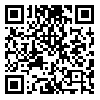Thu, Jan 29, 2026
[Archive]
Volume 38, Issue 1 (1-2024)
Med J Islam Repub Iran 2024 |
Back to browse issues page
Download citation:
BibTeX | RIS | EndNote | Medlars | ProCite | Reference Manager | RefWorks
Send citation to:



BibTeX | RIS | EndNote | Medlars | ProCite | Reference Manager | RefWorks
Send citation to:
Hosseini koukamari P, Nikbakht R, Karimy M, Mohammadi Z. Psychosocial Factors and Musculoskeletal Symptoms in Office Workers: Validating the Maastricht Upper Extremity Questionnaire. Med J Islam Repub Iran 2024; 38 (1) :187-195
URL: http://mjiri.iums.ac.ir/article-1-8821-en.html
URL: http://mjiri.iums.ac.ir/article-1-8821-en.html
Department of Occupational Health Engineering, School of Public Health and Safety, Shahid Beheshti University of Medical Sciences, Tehran, Iran , z-mohammadi@sbmu.ac.ir
Abstract: (1681 Views)
Background: Complaints of the arm, neck, and shoulder (CANS) in the workplace are becoming more prevalent among employees. The Maastricht Upper Extremity Questionnaire (MUEQ) validates upper extremity complaints in 7 domains—including workstation, body posture, break time, job control, job demands, work environment, and social support. The aim of the present study was to translate, adapt, and validate the Persian Version of MUEQ among Iranian office workers.
Methods: The psychometric evaluation of the Persian version of the MUEQ employed a comprehensive methodological approach comprising face and content validity assessments, confirmatory factor analysis (CFA), and Cronbach's alpha. A panel of 10 experts assessed the face and content validity of the instrument. In the second phase, through a cross-sectional study, the validity and reliability of the questionnaire were measured by CFA and Cronbach’s alpha in a sample of 420 people from the target population in Tehran, Iran.
Results: The mean age of the participants was 41.40 ± 7.80 years. Examination of upper limb complaints showed that neck pain was the most common complaint among office workers, with a prevalence of 65%. The CFA results confirmed the questionnaire's structure, with 59 items grouped into 7 subscales, and with fit indices—comparative fit index, 0. 87; root mean square error of approximation, 0.08; goodness of fit index, 0.9. The questionnaire demonstrated strong internal consistency, as all items exhibited Cronbach's alpha values of ≥0.9.
Conclusion: The psychometric evaluation of the Persian version of the MUEQ showed that it is a valid and reliable tool for evaluating psychosocial factors in the work environment. Identifying psychosocial factors influential in musculoskeletal problems will lead to better planning to change behavior and design constructive interventions to improve behavior. By addressing psychosocial determinants of musculoskeletal issues at both the individual and organizational levels, we can enhance employees' awareness, self-efficacy, and ability to manage their musculoskeletal health and make informed decisions about their well-being.
Methods: The psychometric evaluation of the Persian version of the MUEQ employed a comprehensive methodological approach comprising face and content validity assessments, confirmatory factor analysis (CFA), and Cronbach's alpha. A panel of 10 experts assessed the face and content validity of the instrument. In the second phase, through a cross-sectional study, the validity and reliability of the questionnaire were measured by CFA and Cronbach’s alpha in a sample of 420 people from the target population in Tehran, Iran.
Results: The mean age of the participants was 41.40 ± 7.80 years. Examination of upper limb complaints showed that neck pain was the most common complaint among office workers, with a prevalence of 65%. The CFA results confirmed the questionnaire's structure, with 59 items grouped into 7 subscales, and with fit indices—comparative fit index, 0. 87; root mean square error of approximation, 0.08; goodness of fit index, 0.9. The questionnaire demonstrated strong internal consistency, as all items exhibited Cronbach's alpha values of ≥0.9.
Conclusion: The psychometric evaluation of the Persian version of the MUEQ showed that it is a valid and reliable tool for evaluating psychosocial factors in the work environment. Identifying psychosocial factors influential in musculoskeletal problems will lead to better planning to change behavior and design constructive interventions to improve behavior. By addressing psychosocial determinants of musculoskeletal issues at both the individual and organizational levels, we can enhance employees' awareness, self-efficacy, and ability to manage their musculoskeletal health and make informed decisions about their well-being.
Type of Study: Original Research |
Subject:
Health
Send email to the article author
| Rights and permissions | |
 |
This work is licensed under a Creative Commons Attribution-NonCommercial 4.0 International License. |








